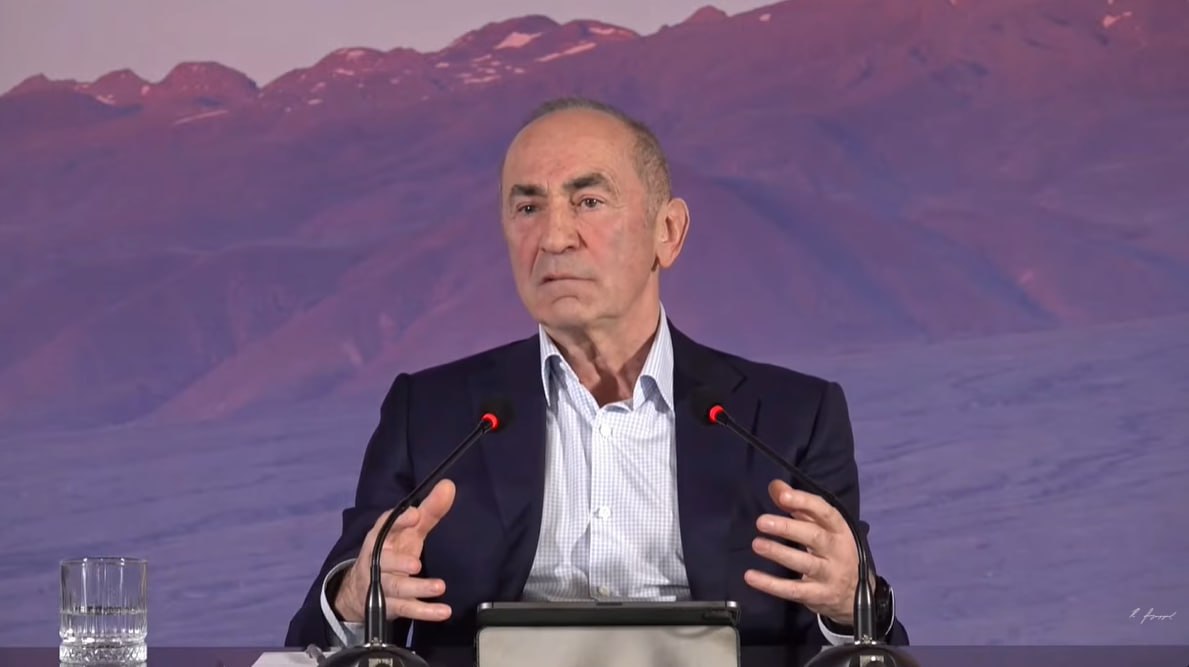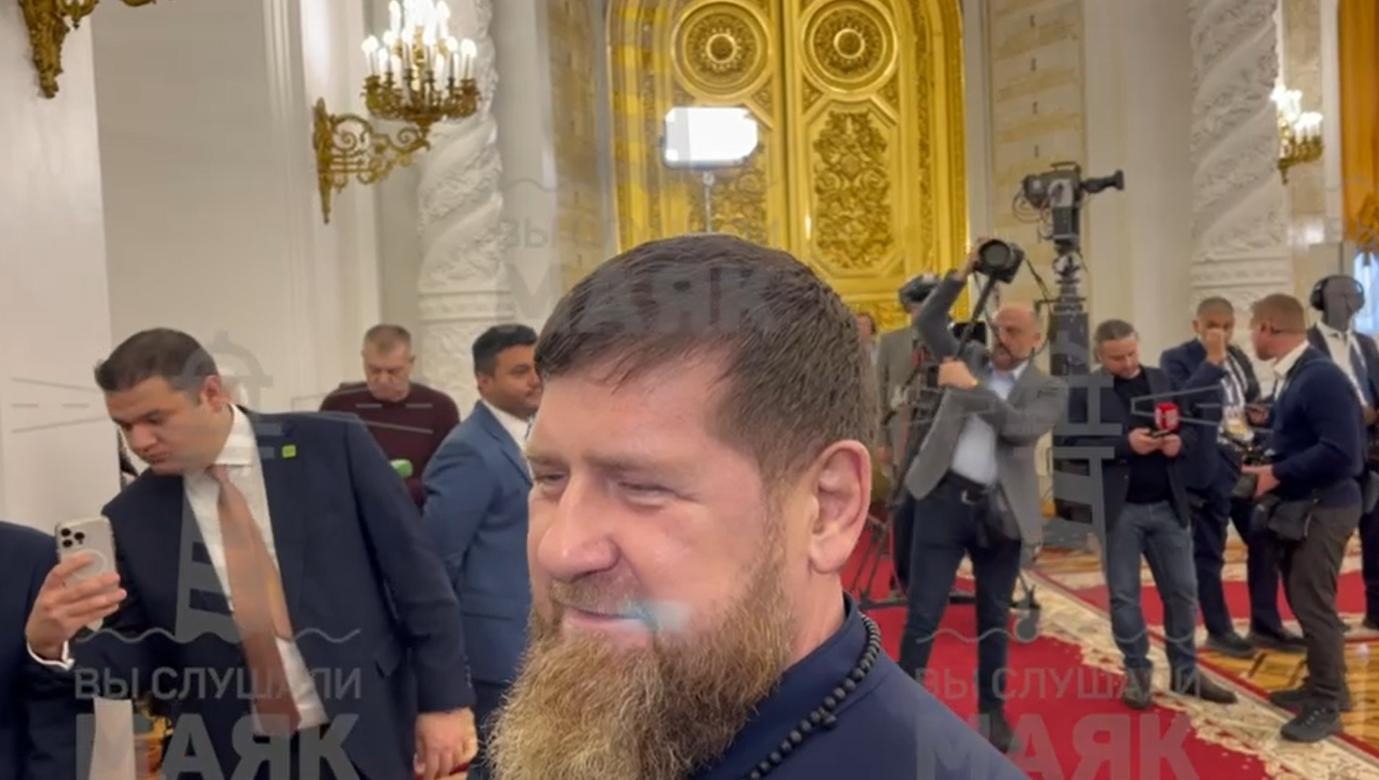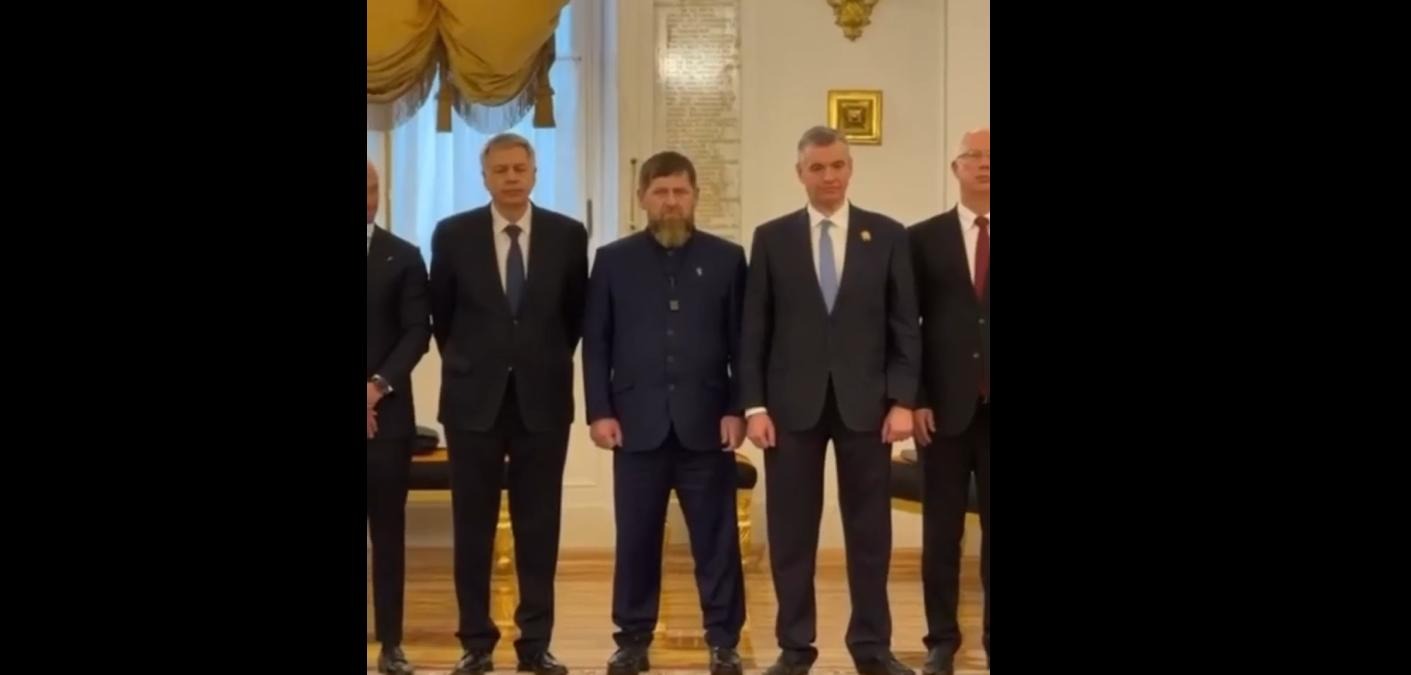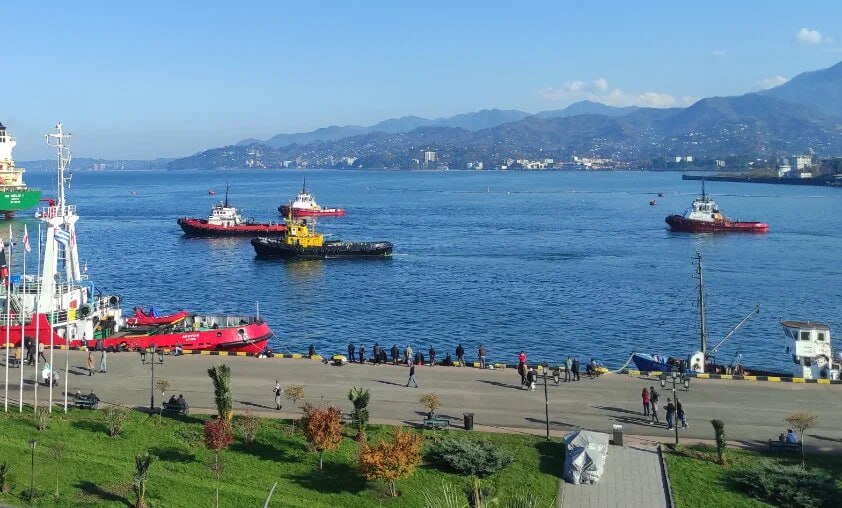Former Armenian President Robert Kocharyan warned against the current government's flippant attitude toward possible harsh responses from Moscow. He believes the authorities fail to grasp the scale of the potential impact Russia could have, including tariff revisions and export blockages.
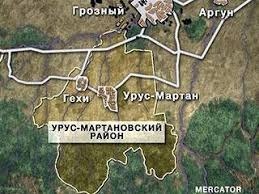
August 4, 2001
***
From August 4 to August 8, Urus-Martan was completely blocked for the passage of vehicles, the checkpoints were reinforced with armored vehicles. On the eastern outskirts of the settlement, for example, two infantry fighting vehicles of internal troops appeared on one of them. Mobile posts were set up inside the regional center at the intersections of streets. Security measures were taken in connection with the approach of 6 August.
The blockade of roads created a lot of inconvenience for the local population. So, on August 6, even footmen were allowed through checkpoints after much persuasion. On that day, Umarova, a resident of the village of Goiskoye, went with her husband to the district hospital, where her seriously ill father-in-law was lying. They were stopped at a post on the outskirts of the district center. The military agreed, and even then reluctantly, to let only the woman through, who had to walk several kilometers on foot.
Due to the blockade of roads, agricultural work was hindered. Grain crops were being harvested in the region, and state farms needed a constant supply of spare parts and fuels and lubricants, which were purchased mainly in the regional center.
On the morning of August 8, by order of the commandant of the district, Urus-Martan was unblocked.
***
At about 10 a.m., at the Kavkaz-1 checkpoint, the military dropped a young woman, Zarema Mazaeva, from a regular bus, noting that she allegedly did not look like her passport photo. Together with her was a three-year-old son, her brother, Magomed Mazaev, and her husband, Sultan Tepsurkaev. All four were taken to a room and kept for several hours. At the same time, they said that the men were taken away as relatives of the suspect. It seemed to the woman that something was expected of her: she suggested to one of the soldiers (probably the eldest) to take gold jewelry (earrings with precious stones, a ring and a chain) and release them. He agreed, but demanded another $500 for the release of the men and let her go on the condition that she would bring this amount by the evening.
From the story of Zarema Mazaeva: “... After that, I returned to my village. Within three hours, my husband's sister and I went around all the relatives. We managed to raise 14 thousand rubles. By three o'clock in the afternoon we arrived at the post with this money. This man himself saw me, made a sign for me to follow him, led me into the same room. He took money from me and told me to move 50 meters away from the post and wait. Indeed, less than ten minutes had passed before I saw my brother and husband walking in my direction. They were pale. We've all been through hard times. I will never dare to go through a post again. I'm afraid of everything in this country where there is no law. I'm sure they were trying to kill me as a woman. Maybe the presence of a sick child stopped them. But the money and jewelry were still taken away. This time it ended happily. For the first time I encountered the Russian military in September 2000 during the "cleansing" operation. The military broke into our house, smashed all the windows and started shooting right out of the windows. The children were screaming, we were scared. We wanted to run out of the house, but the soldiers did not let us go out, they drove us into a corner. I tried to run out of the house with my child, but the soldier shouted: “I will shoot!” When I told him: “You have no right under the law,” he laughed out loud and replied: “I will shoot, and they will say “thank you” to me.” He was right, he knew they were allowed to kill indiscriminately here. During this "cleansing" they took away our relative Abdulkadyrov Marzabek. Nine days later, he was found thrown out on the outskirts of the village, half-dead. This guy survived, but they disabled him. They gave him some injections, after which he became mentally ill. For six months he could not get up and even hold a spoon. At the same time, our other relatives were detained: Tepsurkaev Lecha and Tepsurkaeva Malaysia, brother and sister. They spent about ten days in detention. They were released, and not for free. However, they were so beaten up that they had to be treated for a month. Even the woman was covered in bruises from the beatings. Now they live in fear of another arrest. There is nowhere to complain, and complaining is simply dangerous. If you dare to complain, you risk being killed at night in your house by the Russian military.”
***
At about 11 o'clock in Grozny, a few meters from the checkpoint on the bridge over the Sunzha River, next to the cannery, SaidEli Said-Alievich Khamzaev, born in 1955, was detained. (lives at the address: Grozny, Rodnikovaya st., 12, apt. 9).
He was driving a Zhiguli car driven by Kazbek Dabzaev, a resident of the village of Kulary. Unidentified armed men in camouflage uniforms (in UAZ and Niva cars) forced both of them to leave the passenger compartment, put bags over their heads and took them away in the direction of Petropavlovskaya station, tentatively, to PAP-1, where a temporary filtration point is located. On the same day, Kazbek Dabzaev was released, and the passenger disappeared. His relatives applied to the prosecutor's office and the Internal Affairs Directorate of the republic, to other authorities, but they could not find out the whereabouts of this person.
In October 2002, the Prosecutor's Office of Grozny, in accordance with Article 145 of the Code of Criminal Procedure of the RSFSR, checked the fact of the kidnapping of Said-Eli Khamzaev. However, Memorial Human Rights Center has no information about the initiation of a criminal case based on its results.
***
In secondary school No. 37 in Grozny, destroyed during the hostilities, Doku Alievich Atabaev, born in 1989, was blown up on a tripwire mine. (Staropromyslovsky district, Pogranichnaya st., 203) and Ramzan Romanovich Aleroev, born in 1988 (Staropromyslovsky district, Library St., 120). They went to practice on the preserved sports equipment. Climbing up the stairs inside the building, Doku Atabaev noticed a grenade hanging on the railing. I wanted to warn my friend, but he had already kicked her. There was an explosion. The boys were taken to the hospital, where Ramzan Aleroev died from his wounds. According to the parents, the streamers at the school were installed by the military from checkpoint No. 55, located just 100 meters from it.
***
At 15 o'clock in the village of Chernorechye, Grozny, a mobile group of military men in masks stopped the car "Volga" under the control of Akampash Seznaevich Elderbiev, born in 1960. In the cabin with him were his six-year-old son and two passengers. During the search from the side of the Nursing Home, where the Russian unit is stationed, shooting suddenly began. The soldiers who were near the car returned fire and then hurriedly left the place. Akhampash Elderbiev was killed during the skirmish.
***
In the village of Andreevskaya Dolina, the Zavodskoy district of Grozny, another "cleansing operation" took place. Detained Sulim Makaev, born in 1974 A few days before, he had already been detained by the military on the territory of the destroyed oil refinery named after. A. Sheripov and was rescued by the workers for a box of vodka.
***
Before or after 23:00 in the village of Chiri-Yurt, two civilians were wounded (from houses 14 and 16). Employees of Memorial Human Rights Center were unable to find out either the names of these people or the circumstances under which they suffered.
From the book "People Live Here", Usam Baisaev, Dmitry Grushkin, 2006
